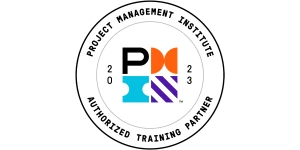Proxy Providers: How to Spot Rebranded Training Partners
Are you familiar with proxy providers? You might also be familiar with rebranded Six Sigma training courses. This article explores the ways in which proxy providers work. Plus, how the symbiotic relationship they share with accredited Six Sigma organizations. Join us as we discover the answers to the following questions: What are proxy providers? How do they work? And more importantly, how do you spot rebranded a training partner?
What is a Proxy Provider and How Do They Work?
A proxy provider is also known as a training partner or a training reseller. Proxy providers work by taking an established course from an ‘accredited’ Six Sigma organization which licenses it to them to brand it as their own. In other words, proxy providers offer courses created by someone else and pay the original provider to allow them to take the credit for it as a separate course.
Both parties typically benefit from the process too. When resellers take out a license to rebrand a course as their own, they also take a commission for themselves, while paying the original provider for their trouble. Training resellers work with a large portfolio of different courses, acquiring a license to market and offer each course to potential students. Resellers are established companies with a strong customer base. For them to make a profit out of reselling, the rebranding company should have a sufficient marketing budget to maximize interest.
Spotting Rebranded Training Partners
Now that we know what proxy providers are, the question remains, how do you spot rebranded training partners? A little research can go a long way to uncovering the answer. The most obvious area to look at would be the types of courses on offer. When proxy providers offer rebranded courses, they rarely change anything about it other than the way in which it’s advertised. Look at similar courses by different providers, particularly sites that may seem to have no bearing in Six Sigma. Then compare them against accredited Six Sigma training providers. The results can be enlightening.
It also helps to look at the company itself that offers the course. Are they an ‘accredited’ Six Sigma organization? What experience do they have with similar offerings? If the answers don’t add up to very much, this can give you a hint about whether a course has been rebranded or not.
Moreover, there tends to be significant price differences in rebranded courses when compared to the original. This may lead you to wonder, why such a difference in cost? Usually, this is just due to the reseller wanting to reach a wider audience, and take more profit, although there may sometimes be other reasons involved.
Are Rebranded Courses Worth Your Time?
To answer the above question, once again, research is involved. If anything has been changed about the course you’re interested in, find out what. While rebranded training partner courses may expand the original audience, they aren’t for everyone. A lot of rebranded courses may look attractive (they’re supposed to), but don’t forget, it’s always better to get them from the original provider. Store-bought milk, for example, may be good for you and look nice in the fridge, but, we’re sure you’ll agree, it’s always best straight to get it from the source.
At 6Sigma.us we are committed to helping people find solutions! We provide hands-on implementations of Lean and Six Sigma at our locations, at your workplace or online. Visit our schedule of classes and find a solution that meets your needs, or contact us and we will surely help you find the right fit.
SixSigma.us offers both Live Virtual classes as well as Online Self-Paced training. Most option includes access to the same great Master Black Belt instructors that teach our World Class in-person sessions. Sign-up today!
Virtual Classroom Training Programs Self-Paced Online Training Programs






